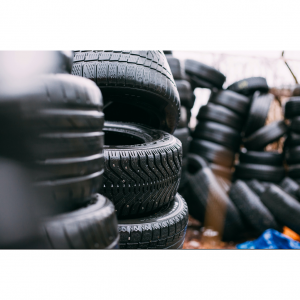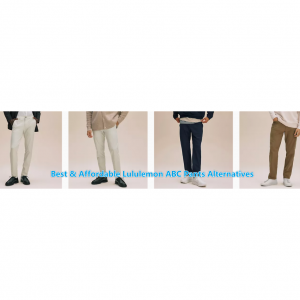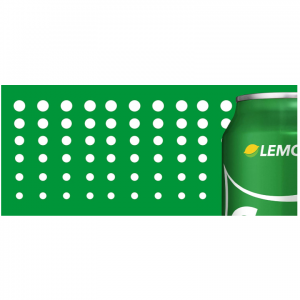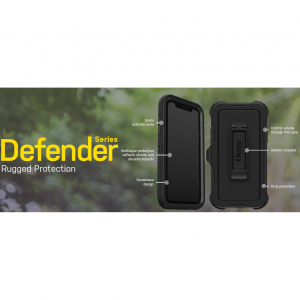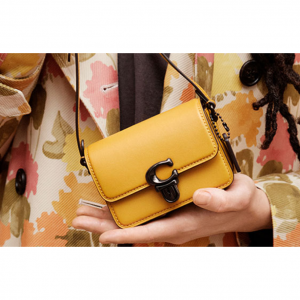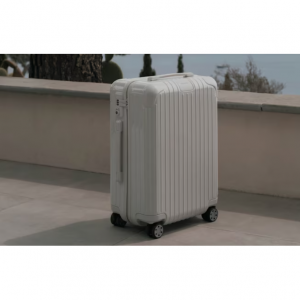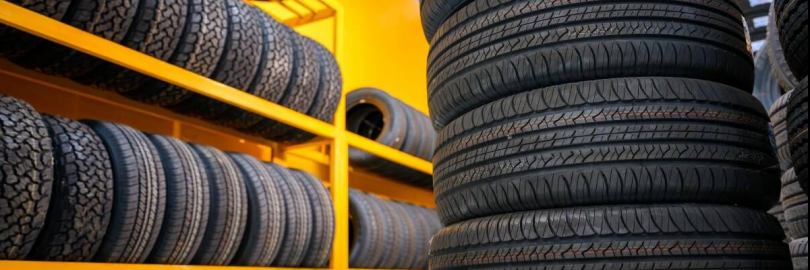
Continental vs. Michelin vs. Pirelli vs. Yokohama Tires: Which Brand is the Best?
- We all kown that tires do more than keep your car moving forward – they also play a key role in your vehicle’s safety, fuel efficiency, and driving feel. There are many different premium tyre brands to choose from, including Michelin, Continental, Pirelli, Firestone, Bridgestone, Goodyear and Yokohama to name but a few. So what tire brand is best? What are the best tires for your vehicle? What brand tires last the longest? What tires are high quality? Below, we’ve outlined the four tire brands: Continental, Michelin, Pirelli and Yokohama, We’ve also go over tire types, industry grading standards, tire maintenance, and how to choose the right tires based on your needs. Whether you’re looking for truck tires, SUV tires, or tires for your sedan, chances are the four best tire brands offer tire models that fit your needs.
Different Types of Tires
The best tire brands offer a range of different tires to fulfill drivers’ varying needs. Below is a list of the most common types of tires you’ll likely encounter in your search for the best tires:
All-season tires: These are designed for highway driving in a variety of weather conditions and road conditions.
All-terrain tires: These tires are meant to perform equally well on- and off-road.
High-performance tires: They’re built to offer sporty handling, superior grip, and quick responsiveness.
Snow tires: This category is typically divided into studded tires and studless tires, depending on your needs. Many of the best snow tires come with studs for improved traction.
Summer tires: Also known as performance tires, these provide wet and dry traction with precise handling during warm-weather conditions.
Ultra-high-performance tires: Made to support high-horsepower vehicles, they offer an enhanced driving experience with great handling and superb traction.
Winter tires: The best winter tires generally offer deeper tread patterns and better traction in winter-weather conditions.
How to Choose the Best Tire Brand?
Choosing the best tire brand for you is a personal decision which depends entirely on how you drive, where you drive, the vehicle you have and your budget.
If you have a Jeep Wrangler and you take it off roading on the trails in the winter, then you need a reliable, durable tire with the strength to endure your travels.
If you're kind of an indoor cat, live in a city, work at home and barely use your vehicle, then you'll need an entirely different, less rugged tire.
Price, availability, longevity and treadlife all come into play.
Where to Buy Car Tires Cheapest?
There isn’t a "best" place to buy car tires from and at the time of writing there was good availability from US retailers.
The below shows some of the cheapest online stores and it’s always worth checking out eBay, too.
Tire Rack: 5% Super Cash Back
Discount Tire Direct : 6% Super Cash Back
4 Wheel Parts : 7% Super Cash Back.
TireBuyer: 6% Super Cash Back.
TireMart: 8% Super Cash Back
Sam's Club: 15% Super Cash Back
Costco: 5% Super Cash Back
Walmart : 5% Super Cash Back
Amazon: No Cashback
Priority Tires: No Cashback
Money Saving Tip: If you want to buy any tire online, Sign up at Extrabux first,(What is Extrabux?), then book through these websites, so you can enjoy up to 15% cashback from Extrabux! Sign-Up Bonus: Free to join it & get a $20 welcome bonus!
Continental vs. Michelin vs. Pirelli vs. Yokohama Tires Overview
Continental

Continental Tires Review
Founded in 1915, Continental is headquartered in Hanover, Germany. The brand is the fourth-largest tire manufacturer worldwide, accounting for 12.9 percent of global sales in 2018, according to Statista. It’s held to similar industry regard as Michelin and Goodyear, two top-tier manufacturers.
There is much to like about Continentals in general. Not only are their designs pleasing on the eye, but the brand’s major focus on performance is evident in the variety of awards they have won over the years.
The tires have excellent grip on dry surfaces, providing velcro like traction when accelerating or braking. They are great performers in the wet and regardless of the weather conditions, you will be sure to feel connected to the road.
Throughout their ranges Continental tires have terrific ride quality. Not only is the comfort of their tires exceptional, but they provide little in the way of road noise – even as the tires begin to wear.
Advantages and Disadvantages of Continental Tires
| Pros | Cons |
|
|
Where to Buy Continental Tires Cheapest?
Tire Rack: 6% Super Cash Back
Discount Tire: 6% Super Cash Back
Popular Continental Tyre Models
Continental’s Most Popular Tires
Continental TrueContact: A well-regarded all-season passenger tire that handles well in wet, dry, and snowy conditions
Continental WinterContact Snow & Ice (SI): A cost-friendly studless winter tire made with PolarPlusTM technology
Continental ExtremeContact DWS 06: An ultra-high performance tire made for sporty drives that still handles well in snow and slush
Top Continental Tyre Choices
Best Continental Performance/Summer Tires
Best Continental All-Season Tires
Best Continental Winter/Snow Tires
Best Continental Truck/SUV Tires
Why Choose Continental Tires?
Continental is committed to producing high-quality tires, which perform according to expectations. Its tires deliver reliable grip, traction, steering response and handling in all types of conditions and surfaces. Also, its tires are highly fuel-efficient, comfortable and durable.
Michelin

Michelin Tyres Review
Michelin is the second biggest tyre brand in the world and is also a trusted OE supplier for Porsche, Ferrari, Mercedes-Benz and more.
It is forever linked to the motorsport industry, most notably in Formula 1, Le Mans, MotoGP and Rally racing, supplying tyres for hundreds of winners over the last 100 years.
Michelin delivers durability, safety and optimal performance in every tyre via its various tyre innovations including its advanced regenerative EverGrip™ technology as well as its Zero Pressure technology to help with punctures. They are also known for low-noise, quiet and comfortable tyres, with many available at Tyroola.
In recent years, Michelin has focused on environmentally friendly initiatives and have 5th-generation green tyres that improve fuel economy and reduce CO2 emissions.Being a premium brand, Michelin has a higher price point but you do get what you pay for.
Advantages and Disadvantages of Michelin Tires
| Pros | Cons |
|
|
Where to Buy Michelin Tires Cheapest?
Popular Michelin Tyre Models
Michelin’s Most Popular Tires
Michelin Defender T+H: One of the longest-lasting tires available for passenger cars
Michelin LTX M/S2: A highway all-season tire that aids with comfort, noise reduction, and braking effectiveness
Michelin Pilot Super Sport: Experience an exhilarating drive with this high performance, summer tyre specially designed for sports coupes, performance sedans and supercars.
Top Michelin Tires Choices
Best Michelin Performance/Summer Tires
Best Michelin All-Season Tires
Best Michelin Winter/Snow Tires
Best Michelin Truck/SUV Tires
Why Choose Michelin Tires?
Michelin has been around for a long time making it a brand you can trust. You know what you’re getting and you can be assured they’ll stand behind their product. Continued technical innovations make Michelin tires more fuel efficient and reduce their environmental impact while improving overall performance. There’s also a wide variety of tires so it’s not hard to find one perfectly suited to your vehicle and how you drive.
Pirelli

Pirelli Tyre Review
Pirelli is synonymous with motorsports, crossing the finish line first in many a Formula 1 Grand Prix race since it is currently the league's sole tyre supplier.
It produces many of the world's best high performance tyres, designed to handle the highest speeds while keeping your ride safe and stable even in wet road conditions.
What Pirelli's engineers learn directly from motorsports they immediately apply to their everyday tyres, including the various all-terrain and all-season tyres they offer.
A Pirelli tyre makes cars ultra-responsive, turn and corner with precision and brake more effectively.
It has also put the environment in the forefront of many of their tyre innovations, coming out with a line of eco-conscious and fuel-efficient, high mileage city tyres that don't sacrifice performance.
Advantages and Disadvantages of Pirelli Tires
| Pros | Cons |
|
|
Where to Buy Pirelli Tires Cheapest?
Popular Pirelli Tyre Models
Pirelli’s Most Popular Tires
Pirelli Winter Sottozero 3: A reputable winter tire with a performance design that often makes best winter tires lists
Pirelli P Zero: A quiet maximum performance summer tire with exceptional dry handling, though the tread may wear down quickly
Pirelli Scorpion Verde All Season Plus: An all-season touring tire with upgraded fuel efficiency and notable wet and dry handling performance
Top Pirelli Tires Choices
Best Pirelli Performance/Summer Tires
Best Pirelli All-Season Tires
Best Pirelli Winter/Snow Tires
Best Pirelli Truck/SUV Tires
Why Choose Pirelli Tires?
Having said that, it's no surprise that Pirelli tires are some of the most reliable you can buy. In terms of performance, Pirelli makes a large variety of high-speed-rated tires, and was among the first manufacturers to make extra wide tires to give drivers the ultimate in wet and dry traction when moving very quickly.
Yokohama

Yokohama Tires Review
Japanese tyre giant Yokohama has been producing some of the best tyres in the world since 1917. Its wide range of performance tyres have applications for all kinds of driving conditions.
Popular lines include the Geolandar family of tyres for trucks and SUVs, the ADVAN range for sports performance tyres and, the Avid, a line of touring tyres for all-season urban driving. It also makes some of the best summer, all-terrain, mud and even winter tyres.
Racing, both on- and off-road, is in Yokohama's DNA. It is a winning tyre supplier for a variety of racing formulas, circuits and leagues, both off-road and on the track for high powered sports cars to the toughest off-roaders as well.
It is also committed to sustainability, developing advanced tread compounds that provide lower rolling resistance to decrease fuel consumption and C02 emissions. Yokohama is also very proud of Orange Oil technology that uses orange-derived oils in each tyre vs traditional crude or synthetic oils.
Advantages and Disadvantages of Yokohama Tires
| Pros | Cons |
|
|
Where to Buy Yokohama Tires Cheapest?
Discount Tire: 6% Super Cash Back
TireMart: 8% Super Cash Back
The Best Yokohama Tyre Models
Yokohama ’s Most Popular Tires
Yokohama AVID Touring-S: A standard touring all-season tire with several design features to maximize traction and hydroplaning resistance
Yokohama Geolandar A/T G015: An all-terrain tire featuring variable tread blocks, 3D sipes, and lug grooves for even wear and increased handling, even in snowy conditions
Yokohama Parada Spec-X: An all-season tire for sports trucks and muscle cars, designed with a directional tread for hydroplaning resistance
Top Yokohama Tires Choices
Best Yokohama Performance/Summer Tires
Best Yokohama All-Season Tires
Best Yokohama Winter/Snow Tires
Best Yokohama Truck/SUV Tires
Why Choose Yokohama Tires?
It is hard to fault a tire company that has been in business for the past 100 years. Besides the brand recognition and the motorsports pedigree, here are a couple more reasons why you should choose Yokohama for your next set of tires.
Continental vs. Michelin vs. Pirelli vs. Yokohama Tires:Comparison Side by Side
1.Catalogue of Tires
Continental Tires
Continental Tire types Know the difference between the various tire types
| Category | Types of Continental Tires |
Passenger tires |
|
Michelin Tires
Michelin tires fall into two categories: passenger tires and light truck/SUV tires. Each category includes different types of tires with varying purposes.
| Category | Types of Michelin Tires |
Passenger tires |
|
Light truck/SUV tires |
|
Pirelli Tires
The Pirelli tires catalogue is the result of years of investment, research, and innovation, and includes a wide range of summer, winter, and all-season models designed for cars, SUVs, and vans.
| Category | Types of Pirelli Tires |
Passenger tires |
|
Five families series |
|
Yokohama Tires
| Category | Types of Yokohama Tires |
Application |
|
Vehicle Type |
|
Tire Family |
|
2.Cost
Continental Tires
Based on our research, Continental tires can range from about $70 to $420 per tire, but more popular models skew upward.
Continental tires can be pricey, but they’re not as expensive as Michelin tires. And, at the end of the day, you get what you pay for. Many drivers find a higher price tag to be worth it after considering the company’s rigorous testing standards, quality materials, and tread life warranty.
Michelin Tires
A Michelin tire can cost between $140 and $875, according to Tirebuyer. Prices can vary widely depending on the size and style of tire. However, in general, Michelin tends to be more expensive than most other tire manufacturers.
To give you a sense of how much Michelin tires may cost you, we’ve included the costs of popular tires from Michelin as shown on Tire Rack. For accurate price comparison, all tire prices listed below are for shipment to Raleigh, North Carolina, before rebates, with a tire width of 225, ratio of 45, and diameter of 17.
Pirelli Tires
On average, most Pirelli tires are well above $100 apiece. This is on the expensive side but is on par with the cost of Michelin and Goodyear tires. Many drivers don’t mind paying more for Pirelli tires because they’re highly specialized and often made for premium car brands.
Yokohama Tires
Yokohama tires aren’t the cheapest, nor are they the most expensive. However, the company’s more resilient tires offer great long-term value. In a 2016 Consumer Reports study comparing all-season tires’ cost versus longevity, the Yokohama AVID Ascend (T) tire came in second place. Though the tire cost $93, it lasted for 85,000 miles.
3.Tires Last Time
Continental Tires
Continental tires last between 15,000 and 70,000 miles, depending on how hard they are driven.
When the tires are not being used much they can last as long as 6 years, but normally they will wear out after 3-4 years.
Michelin Tires
Michelin tires last between 45,000-85,000 miles or 72,400-136,800 km.
An average lifespan of a tire can last an everyday driver for 3 to 5 years. The difference can be pretty substantial when compared to a Michelin tire mileage.
Pirelli Tires
The longest Pirelli tires tread life warranty is 90,000 miles, but most of its models last between 50,000 and 65,000 miles. Most Pirelli tires should last between 3 to 8 years.
However, several factors, such as fast driving, rough terrain, or underinflation, can all reduce the number of years you get from your Pirelli tires.
Yokohama Tires
Yokohama is one of the world’s oldest and most respected international tiremakers and produces very high-quality tires that last up to 85,000 miles.
The tire manufacturer’s 6-year limited warranty for replacement tires is also in line with competitors.
4.Tire Quality
Continental Tires
When it comes to quality, there is little argument that Continental ranks up there with the best in the business. Continental put their tires through rigorous testing procedures in order to create a product that sets the bar in terms of quality. 140,000 tires are subjected to 200 million kilometres of testing being incorporated into production lines.
Michelins Tires
The brand’s quest to produce excellent tires is shown throughout their product range.
This is evident in not only Michelins industry reputation, but their performance. Whether it’s on the track, highways or off the beaten path, Michelin tires are consistently ranked in the top 5 of every class.
Pirelli Tires
Due to their primarily high-end approach, the quality of Pirelli’s tires has always been world class.
Their tires are made from the finest materials and refined production process and because of this quality driven mindset, these tires do not have to be replaced often which lessens the blow of the pricey tag.
Yokohama Tires
A huge emphasis is put on quality when it comes to Yokohama and their tires. Their tires are made from high quality materials which have been sourced over decades through great care and experience.
A massive feather in Yokohama’s cap when it comes to quality is the various partnerships the manufacturer has enjoyed with leading companies and competitions in motorsport.
5.Tire Warranty
Continental Tires
All Continental tires are covered by our extensive warranty policy. Depending on the legal framework in your country (details may vary), most markets are covered by a minimum warranty period of 2 years starting from the day when you purchased the tire.
Michelin Tires
All MICHELIN passenger and light truck replacement tires, and original equipment tires for 2011-2017 model years, are covered by a limited mileage warranty for treadwear, as well as a limited warranty which covers defects in workmanship and materials for the life of the original usable tread, or for 6 years from date of purchase, whichever occurs first.
60-Day satisfaction guarantee
If you’re not 100% satisfied, bring the tires and original sales receipt back to the place of purchase within 30 days for a new set of tires.
Pirelli Tires
Pirelli tires have a 48-month or 4-year warranty against faults in workmanship and materials from the date of production. There are various circumstances in which the tire’s damage is not covered by the guarantee. The following are examples of this:
1) The tires are moved from the vehicle where they were originally placed.
2) A third-party company has repaired the tires.
3) The tires have had material added to or removed from them.
4) The tires have been injected with anything other than air or nitrogen, such as liquid balance.
5) Tyres have been utilized in racing or other forms of motorsport.
Yokohama Tires
Yokohama tires are covered by this warranty for the life of the original usable tread depth [the original tread depth down to the level of treadwear indicator bars molded at 2/32” (1.6mm) or for 60 months from the date of purchase (proof of purchase required) or 72 months from the date of manufacture (if no proof of purchase available), whichever comes first.
This warranty applies to every Yokohama replacement passenger car, light truck and temporary spare tire bearing the Yokohama brand name and complete D.O.T. serial identification number and operated during normal highway use (commercial applications excluded) in the United States.
What is a Tire Warranty and What Does It Cover?
One criteria which should be considered when shopping for tires is the warranty offered by the manufacturer. A good tire will have a reasonable warranty which will cover a certain amount of time from the date of purchase, treadlife considerations and mileage estimates.
Warranty types include:
Treadlife Warranty (also called Mileage Warranty)
Workmanship and Materials Warranty
Uniformity Warranty
Road Hazard Warranty
Special Manufacturer Warranty
How to Maintain the Tires?
Here are a few ways to maintain your tires:
Buy the right size tires. Tire size can be another hurdle to navigate when searching for the best tires. To find the best tires for your vehicle, take a look at your owner’s manual. If the information isn’t there, you can also check the driver’s side door for the Tire and Loading Information label.
Check your tire pressure. Under-inflated and over-inflated tires can lead to braking issues, so check your tire pressure once a month. Newer cars have built-in systems to tell drivers when their tire pressure is off, but if that doesn’t apply to your vehicle, keep a tire gauge in your car.
Look at your tire tread. Tires come with tread wear indicators, and you should check them once a month. These rubber strips run horizontally across the tire and only appear when the tire needs changing. Tires are considered unsafe when they’re worn down 2/32 of an inch, according to the NHTSA.
Rotate your tires. Rotating your tires according to a manufacturer-recommend schedule makes sure they wear out evenly. Improper inflation and alignment can also cause uneven wear.
Continental vs. Michelin vs. Pirelli vs. Yokohama Tires: Which Brand is Better?
Continental tires are an excellent option for all-season drivers and are notably safe in wet and dry conditions. The brand also offers a few reputable winter tires, which may be a good option for drivers looking for more affordability.
Michelin's track record for superior handling, increased mileage and tyre durability is hard to beat.The figures, reviews and ratings speak for themselves; Michelin manufactures the best tires in the world, and it has been doing so for a considerable time.
Pirelli is a sound choice for performance tires. Customers are often impressed with their dry handling and low noise on the road. However, Pirelli tires are expensive and regularly cost upwards of $100 per tire. If you’re on a budget or want a tire better suited for the daily commute, consider other brands.
While Yokohama tires may not excel in any one field on the road, they're well worth considering if you're environmentally conscious. They have a lower environmental impact than most other tire brands, even if we'd like to see improved rolling resistance to ensure they're as road-friendly as they are green.
Conclusion: Which One Should You Choose?
You definitely won't lose with the a Continental , Michelin, Pirelli or Yokohama tyre. All four brands have a solid track record in producing reliable, high quality tyres.
However, the best way to choose is to consider what you really need in a tyre. Performance levels might vary between patterns so it's best to do research and ask the following questions:
What is the climate like? Will you need summer, winter orall-season tyres?
What kind of car do you drive and how much weight will you be carrying?
What is the terrain where you drive? On road? Off road? Or a combination?
Ensure the tyre you choose matches your specific driving style and that it is the right size for your car.
Related Read:
Firestone vs. Bridgestone vs. Goodyear vs. Michelin: Which Makes the No. 1 Tire Brand?
10 Best Car Insurance for New Drivers of 2025: In-Depth Comparison And Verdict
10 Best Online Stores to Buy Car Parts 2025 (Coupons + up to 4% Cashback)
12 Best Affordable Luxury Cars & SUVs That Hold Their Value in 2025
10 Best Sites to Buy and Sell New and Second-hand Cars Online 2025

Extrabux is an international cashback shopping site, offering up to 30% cashback from 10,000+ Stores!
Squarespace, SkinStore, MATCHESFASHION, The Wall Street Journal, NordVPN, Visible, Armani Exchange, Sam's Club, PUMA, AliExpress, Card Cash, NET-A-PORTER, Udacity, Udemy, Selfridges, LOOKFANTASTIC, Vimeo, Coach Outlet, lululemon, PrettyLittleThing, Booking.com, Ripley's Aquarium, iHerb, Groupon, etc.
Join to get $20 welcome bonus now! (How does Welcome Bonus work?)
Recommendation
-

Is Turkish Airlines Good for International Flights?
-
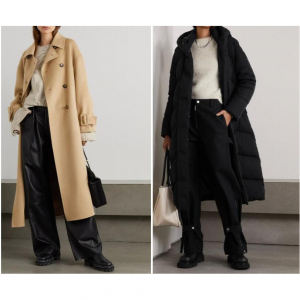
10 Best & Stylish Winter Coats for Women on NET-A-PORTER in 2025
-

Top 12 Items That Are Always Cheaper at Sam's Club!
-

Top & Best 12 Sneaker Apps/Websites for Raffles, Releases & Restocks in 2025
-
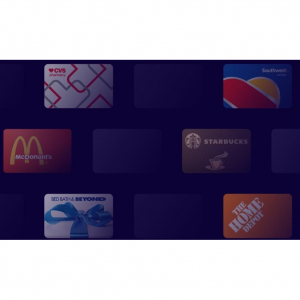
7 Best Gift Card Exchange Sites - Buy, Sell and Trade Discount Gift Card Safely and Instanly!

